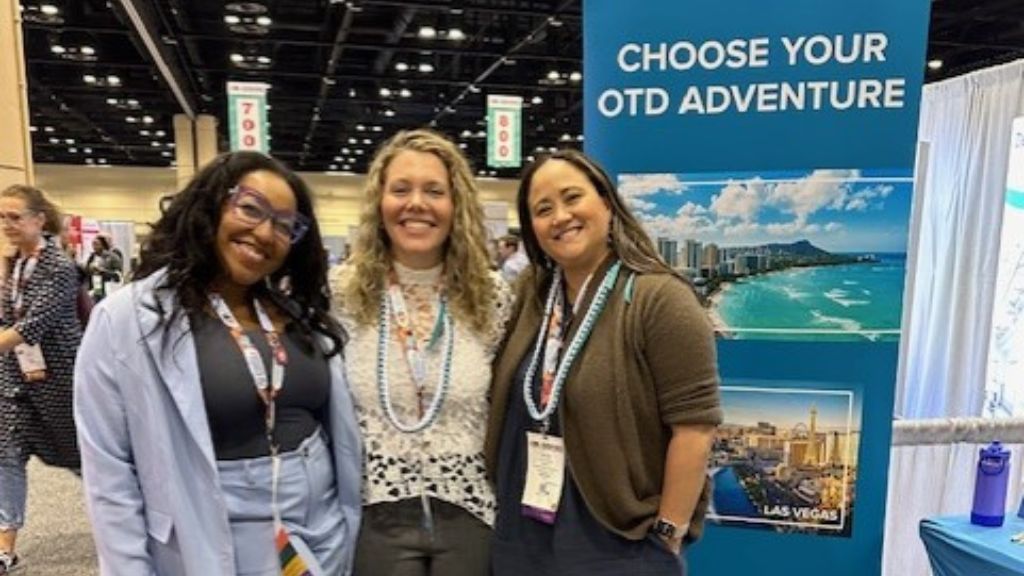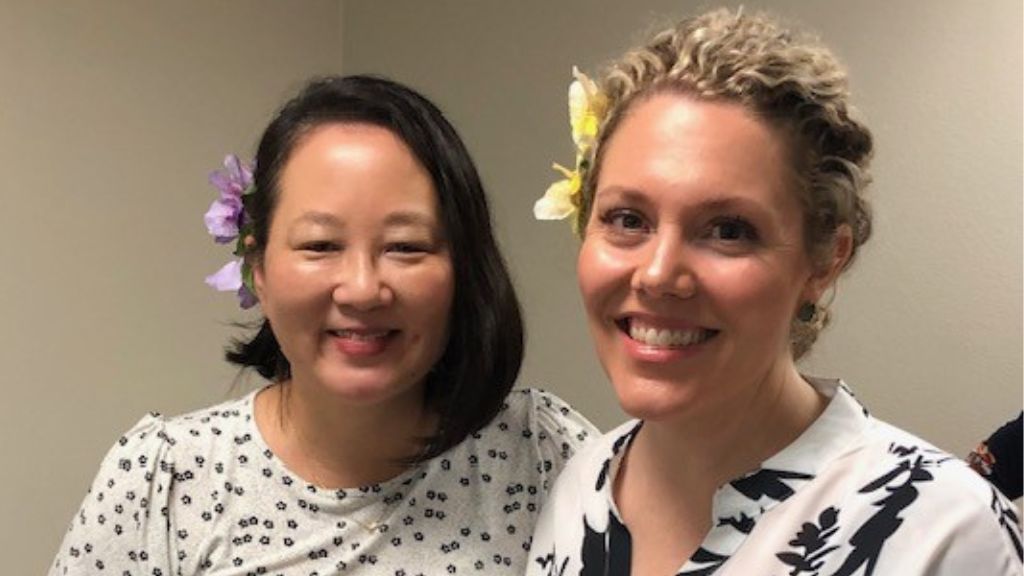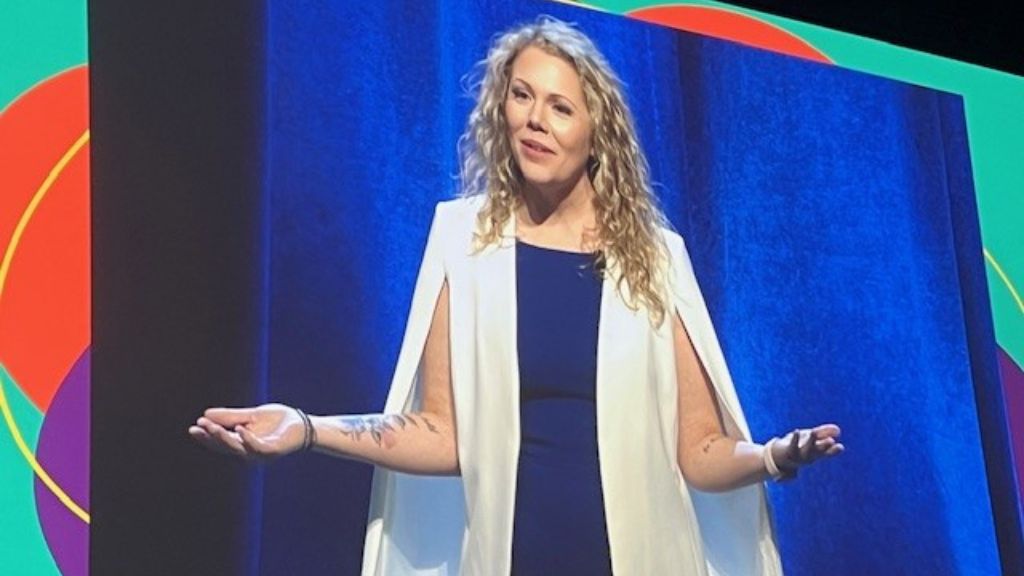Occupational therapy is, for many, an enigma in the healthcare landscape but it’s a critical resource offering individuals the tools they need to live their fullest lives despite physical, emotional, or cognitive challenges. Susan Lingelbach, OTD, OTR/L is one such clinician who is transforming lives through applied practice and research, and as an Assistant Professor and Director of Admissions for Hawaiʻi Pacific University’s new graduate Occupational Therapy Doctorate program in Las Vegas, she is creating a lasting impact on the future of the profession.
From Stage Lights to Spotlight of Care
Lingelbach’s story begins in the unlikely world of theater. With a passion for performance and an undergraduate degree in theater arts, her early career was far removed from the clinical settings she thrives in today. However, it was this unique background that laid the groundwork for her future in occupational therapy—a field that values creativity and adaptability as much as scientific knowledge.
The transition from the world of theater to occupational therapy was not immediate. For years, Lingelbach charted a path filled with diverse experiences, from working in a veterinary office to exploring different career options. Then, after receiving a serendipitous gift in the form of a career guidance book from her mother, a long-forgotten suggestion reignited in her mind: occupational therapy.
“I originally found out about the field in high school while working with a special education class. The teacher recommended I look into occupational therapy, but I didn’t think anything of it and went on my merry way. I was directionless in my career for many years until I was given ‘Cool Careers for Dummies’,” she laughed. “I took the aptitude test, and the highest pairing was with occupational therapy. This was now the second time I crossed paths with the field, so I did some research and after I read more about it, I thought, ‘Oh my gosh, why didn’t I see this earlier?’”
This epiphany led Lingelbach to the University of Southern California where she completed a Master’s degree in Occupational Therapy, followed by a Post-Professional Doctorate focusing on research and teaching from Thomas Jefferson University.
A Clinical Journey Through Diverse Settings
Lingelbach’s clinical background is marked by an impressive diversity of experiences. From school-based occupational therapy to in-patient rehabilitation and community-based work with refugees, her career reflects a profound commitment to serving a wide range of client needs. It was in the dynamic and demanding environment of school-based OT that Lingelbach found her calling, working across over three states and seven school districts, each with its unique challenges and opportunities.
“It’s not uncommon for an occupational therapist to remain at a single job for many years. But I’m from a small town in Northern Nevada and it was my goal to travel all around the west coast of the United States and live in different places. It served me well because it exposed me to some really lovely and unique things that therapists are doing that I wouldn’t have known about otherwise,” she explained.
This varied experience not only honed her clinical skills but also deepened her understanding of the profession’s core values. “No matter where you are, the core of the profession is always the same,” she noted. She also emphasized the universal goal of helping individuals engage meaningfully in life through occupation.
So, what is occupational therapy?
“Occupational therapy isn’t just about occupation in terms of a job,” Lingelbach said. “Occupation is anything that occupies your time. An occupational therapist finds what is meaningful for an individual person, a group of people, or a population they’re working with and helps them live the best lives they possibly can through engagement in occupation.”
According to the American Occupational Therapy Association (AOTA), occupational therapy promotes health, well-being, and participation by enabling people of all ages to take part in daily living. Examples of occupational therapy activities range from teaching activities such as bathing, dressing, and eating to the implementation of adaptive equipment like shower chairs or increasing the accessibility of buttons on daily appliances to promoting techniques to aid in memory, concentration, and executive functioning. Occupational therapists may also provide caregiver and family training, and work with patients and clients on fall prevention, home safety, and accessibility strategies.
In school settings, like Lingelbach’s predominant experience, occupational therapists help students transition between activities and places, use strategies to complete assignments and turn in work on time, or follow classroom rules and routines. OTs may also help children organize their desks and lockers, use school supplies and equipment, and develop coping mechanisms for a wide range of behavioral and emotional management needs.
Regardless of the setting, however, the goal of an occupational therapist remains the same, “Helping you do those things that you need to do or are expected to do in society that makes up your life and teach you how to be an advocate for yourself and your needs,” Lingelbach said.
Tackling Burnout: A Researcher’s Quest
Amidst her clinical successes, Lingelbach confronted a pervasive challenge within her profession: burnout. Motivated by her personal experiences and a desire to support her peers, she embarked on qualitative research to explore burnout among occupational practitioners, particularly in school-based settings. Her findings highlighted the high stress and chaos inherent in such environments, compounded by the aftermath of the pandemic.
“We spend most of our education on healthcare settings and not on educational or school settings despite 20 percent of occupational therapist practitioners working in that practice area,” Lingelbach said. “My research focused on those challenges occupational therapy practitioners face in terms of knowing their role within a school, having other professionals understand their role, the stressors of operating in a chaotic environment, and the added stressors contributed by COVID. I used arts-based methods and interviews to gather my data as well as an arts-based method of dissemination, which is somewhat unique in OT research.”
Lingelbach’s research not only shed light on the factors contributing to burnout but also underscored the need for systemic solutions to support the well-being of OT practitioners. Through national presentations and creative collaborations with organizations like the acclaimed Chicago-based improvisation group Second City, she has become a vocal advocate for practitioner wellness, integrating insights from her research into actionable strategies for combatting burnout in the field.
“We [Second City] delivered a presentation at last year’s AOTA national conference about using improv skills in communication as one of the ways to combat burnout in occupational therapy practice,” she said. “Practitioner well-being is a big passion of mine.”
Shaping the Future of OT at HPU
HPU is launching a hybrid OT doctoral program based at the new Las Vegas campus that is designed to address the current and future needs of the profession. As the Director of Admissions for the program, Lingelbach’s focus is on championing diversity and accessibility in occupational therapy and recognizes the critical importance of representing the communities OTs serve.
“As a whole, the western United States is very rural. We are hoping this program will draw people who will then go back to these geographic pockets that lack occupational therapy services and implement high quality healthcare in their hometowns,” Lingelbach said.
The hybrid nature of the program is a pioneering effort combining online and in-person learning and reflects HPU’s commitment to breaking down barriers to education and professional development.
“One thing that captured my attention about this program was having Dr. Robyn Otty as the program director. I’ve worked with her in the past and not only is her leadership incredible but also she knows how to create a sense of belonging within a team and that’s something I wanted to be a part of,” she said.
Under Lingelbach’s guidance, the OT program is poised to cultivate a new generation of occupational therapists equipped to meet the challenges of a diverse and changing world. Its emphasis on inclusivity, holistic care, and the integration of technology in education aligns with the broader goals of the occupational therapy profession to enhance human lives and communities.
“Overall, the accelerated nature of the program and HPU’s values really aligned with my own personal values of ensuring things like occupational justice, creating opportunities for more people to give and get help, and moving through the world with more kindness and humility,” she explained.
A Call to Action for Aspiring Occupational Therapists
For those drawn to the field of occupational therapy, Lingelbach offers both inspiration and realism. Acknowledging the hard work and challenges inherent in the profession, she remains unwavering in her passion and optimism for the impact occupational therapists can make.
“There’s nothing quite like it,” she said, reflecting on the satisfaction that comes from helping others lead more fulfilling lives.
Building community is key among occupational therapists, Lingelbach also said. It’s an idea at the forefront of her priorities as the President of the Nevada Occupational Therapy Association.
“This role comes with a big sense of responsibility,” she said. “We want people to feel like they belong in this profession and that they not only feel like they have a place in occupational therapy but within the Nevada occupational therapy community.”
Continuing education, webinars, and hosting the first in person conference since before the pandemic, The Nevada Rise Conference on May 18th at Las Vegas City Hall, are all initiatives that Lingelbach is championing on behalf of her colleagues across the state.
As the occupational therapy profession continues to evolve, figures like Dr. Susan Lingelbach serve as guiding lights, embodying the values of creativity, empathy, and resilience. Through her work as a clinician, researcher, and educator, she is not only shaping the future of occupational therapy at HPU but also inspiring the next generation of therapists to pursue their calling with courage, innovation, and a deep commitment to improving the human condition.





